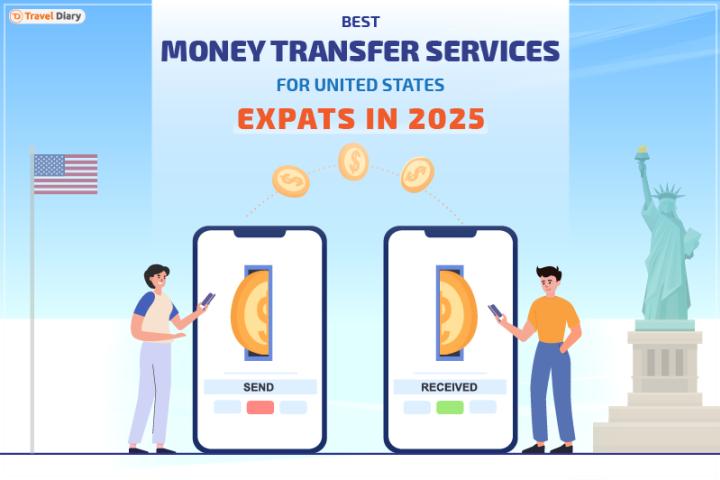The world has become more interconnected than ever before, with individuals, businesses, and organizations constantly needing to transfer money across borders. Whether it’s for personal remittances, business payments, or international investments, cross-border transactions have become a critical component of global commerce. As the demand for faster, more reliable, and cost-effective money transfers grows, money transfer software providers are at the forefront of shaping the future of international payments.
In this article, we explore how these providers are transforming cross-border transactions and why their role has never been more crucial. We’ll also examine the technology driving these changes, the benefits to businesses and consumers, and the challenges still to overcome.
The Rise of Digital Money Transfer Solutions
The global money transfer market has seen significant disruption in recent years, largely due to the emergence of digital platforms and software solutions. Traditionally, cross-border payments were cumbersome, slow, and expensive, often involving intermediary banks that charged high fees and took several days to process transactions.
However, the rise of money transfer software has disrupted this model, offering faster, cheaper, and more transparent solutions. Providers like TransferWise (now Wise), Remitly, and WorldRemit have revolutionized the process by leveraging technology to cut down on costs and improve speed. This has created a more inclusive financial environment, benefiting both individuals and businesses who rely on fast and affordable international transactions.
Key Technologies Driving Cross-Border Transactions
-
Blockchain and Cryptocurrencies
One of the most significant advancements in the realm of cross-border payments is the introduction of blockchain technology and cryptocurrencies. Money transfer software providers are increasingly adopting blockchain to make transactions more secure, transparent, and faster. Unlike traditional banking systems that rely on central authorities, blockchain allows for peer-to-peer transactions without intermediaries, dramatically reducing processing times and fees.
Cryptocurrencies such as Bitcoin, Ethereum, and stablecoins like USDC are being integrated into money transfer platforms as an alternative to traditional currencies. These digital assets enable near-instantaneous transactions, offering a cost-effective solution to international payments. With blockchain's decentralized nature, cross-border transactions become more accessible, especially for underserved regions with limited access to banking infrastructure.
-
API Integrations for Seamless Transfers
One of the ways that money transfer software providers are improving cross-border transactions is through the integration of Application Programming Interfaces (APIs). APIs allow different financial institutions, payment processors, and remittance services to connect with each other and enable faster and more reliable money transfers.
Through seamless API integrations, businesses can offer their customers an easy and secure way to send money across borders without needing to visit a bank or exchange office. By automating and streamlining the entire process, money transfer providers reduce human error, improve transaction speed, and offer a better customer experience.
-
Artificial Intelligence and Machine Learning
Artificial Intelligence (AI) and Machine Learning (ML) are playing an increasingly important role in the future of money transfers. By analyzing transaction data, AI helps money transfer software providers to detect fraud, assess risk, and ensure compliance with regulatory requirements in real time.
Furthermore, machine learning algorithms are able to predict optimal transfer routes, minimizing fees and ensuring that customers get the best possible deal when sending money abroad. AI also assists in providing personalized experiences for users by recommending payment methods based on their past behavior, location, and preferences.
Benefits of Money Transfer Software Providers
-
Faster Transactions
One of the most notable advantages of modern money transfer software is the speed of transactions. Traditional bank transfers can take several days, particularly for cross-border payments. However, digital money transfer software can process transactions in a matter of minutes or hours, ensuring that funds are available almost immediately. This speed is crucial in both personal remittances, where the sender may need funds quickly, and for businesses that rely on efficient cash flow to maintain operations.
-
Lower Transaction Fees
Money transfer software providers have significantly reduced the cost of cross-border payments. Traditional bank transfers and wire services often come with hefty fees, including hidden charges and unfavorable exchange rates. Digital money transfer platforms, however, offer more competitive fees and better exchange rates, making it more affordable for both individuals and businesses to send money abroad.
By using blockchain and other cutting-edge technologies, these platforms bypass the traditional banking system and associated fees, resulting in lower overall costs for the end user. This makes international payments more accessible, especially for lower-income individuals and small businesses that rely on remittances or cross-border trade.
-
Enhanced Security and Transparency
With the rise of digital payment platforms, security has become a top priority for money transfer software providers. Advanced encryption and authentication measures, such as two-factor authentication (2FA) and biometric identification, ensure that cross-border transactions are secure from fraud and unauthorized access.
Moreover, blockchain technology ensures transparency by providing a decentralized ledger of transactions. This allows both senders and receivers to track their payments in real time, improving trust and accountability.
-
Financial Inclusion
One of the most significant contributions of money transfer software providers to the global economy is the promotion of financial inclusion. Millions of people around the world, especially in developing countries, lack access to traditional banking services. Money transfer software has enabled these individuals to send and receive money with ease, bridging the gap between the unbanked and the global financial system.
Providers that integrate mobile wallets and digital payment systems enable users to perform transactions with just a smartphone, even if they don’t have a bank account. This opens up new opportunities for financial participation and access to vital services like healthcare, education, and business opportunities.
Challenges and Obstacles in the Future of Cross-Border Transactions
Despite the rapid advancements in money transfer technology, there are still some challenges to overcome:
-
Regulatory Compliance
Cross-border transactions are subject to a wide range of regulations, which vary from country to country. Money transfer software providers must navigate these complex legal landscapes to ensure that they are compliant with local laws, including anti-money laundering (AML) and know your customer (KYC) regulations. As governments around the world continue to adapt to the rise of digital financial services, staying up-to-date with regulatory changes is crucial for software providers.
-
Currency Volatility
Currency exchange rates can fluctuate wildly, particularly in emerging markets. This volatility can affect the cost and reliability of cross-border payments. Money transfer software providers must find ways to mitigate these risks, such as by offering customers the ability to lock in exchange rates or by using stablecoins to reduce exposure to currency fluctuations.
-
Market Competition
With the increasing demand for digital money transfer services, competition is intensifying. New players are entering the market, and established financial institutions are adapting to the digital shift. This means that money transfer software providers must continuously innovate, enhance their offerings, and provide the best possible user experience to stay competitive.
The Future of Money Transfer Software Providers
As technology continues to evolve, the future of cross-border transactions looks incredibly promising. Money transfer software providers will continue to lead the way in making international payments faster, cheaper, and more secure. With advancements in blockchain, AI, and mobile payment solutions, the global payments landscape will become more efficient and inclusive.
The role of these providers in shaping the future of cross-border transactions is indispensable. By offering innovative solutions that meet the needs of both consumers and businesses, they are not only improving the payment process but also contributing to a more connected and financially inclusive world.
Conclusion
Money transfer software providers are at the forefront of a financial revolution. With their use of blockchain, APIs, AI, and mobile technology, they are reshaping the way people and businesses conduct cross-border transactions. By making international payments faster, cheaper, and more secure, these providers are improving global commerce and promoting financial inclusion. Despite challenges like regulatory compliance and currency volatility, the continued evolution of money transfer technology will undoubtedly create a more efficient, transparent, and inclusive global financial ecosystem in the years to come.











